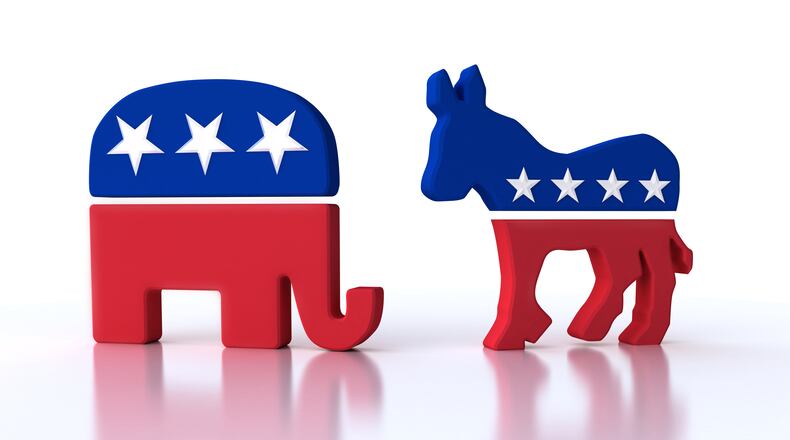A Republican legislator in Iowa wants a political litmus test for faculty at the state's public campuses to ensure a balance of ideologies.
Sen. Mark Chelgren, R-Ottumwa, told the Des Moines Register, "We have an awful lot of taxpayer dollars that go to support these fine universities. Students should be able to go to their professors, ask opinions, and they should know publicly whether that professor is a Republican or Democrat or no-party affiliation, and therefore they can expect their answers to be given in as honest a way possible. But they should have the ability to ask questions of professors of different political ideologies."
Chelgren is proposing a state law to bring balance. His Senate bill 288 requires:
Partisan balance of the faculty employed at each of the institutions of higher learning governed by the board. A person shall not be hired as a professor or instructor member of the faculty at such an institution if the person's political party affiliation on the date of hire would cause the percentage of the faculty belonging to one political party to exceed by ten percent the percentage of the faculty belonging to the other political party, on the date established by the board for determining the political party composition of the faculty...For purposes of this subsection, "partisan balance" refers to balance between faculty members who declare a political affiliation with one of the two political parties whose candidates for president of the United States or for governor, as the case may be, received the largest and next largest number of votes at the last general election.
According to the Register, Chelgren believes political affiliation represents another dimension of the diversity colleges contend they want on their campuses.
"I'm under the understanding that right now they can hire people because of diversity," said Sen. Mark Chelgren. "They want to have people of different thinking, different processes, different expertise. So this would fall right into category with what existing hiring practices are."
Asked whether the regents need greater diversity of thought, spokesman Josh Lehman said the board "expects the universities to hire the most qualified faculty to teach our students."
But Rep. Mary Mascher, a Democrat from Iowa City whose district includes the University of Iowa, said she doesn't believe such a quota would pass Constitutional muster. "We do have a Constitution and it's there for a reason, and it's to try to protect equity and to make sure that we don't judge people on the basis of their race or religion, their creed, their political beliefs," she said. "We never ask that question when someone's hired: Are you a Republican, Democrat, or independent, or Green Party or socialist or any of that. And I think that would be clearly discriminatory."
There's long been a contention that liberal college professors convert impressionable students to their leftist views, although related research by April Kelly-Woessner and Matthew C. Woessner suggests that may be overstated.
Overall, our research indicates that an instructor's politics matters.Efforts to politicize the classroom have a deleterious effect on a political science instructor's core responsibility to educate students about the workings of government and generate enthusiasm about the political world. However, our study suggests that students may not be the sponges that some people have suggested. At least among students with preformed political views, it seems unlikely that professors' messages would be taken at face value. This may mean that the "indoctrination" effect may be somewhat overstated. Still, it is important to note that our study simply does not measure political persuasion. While we have some evidence that shows students are resistant to information from professors whose political orientations differ from their own, this does not mean that no persuasion occurs – only that students are less open to information when their views differ from those of the professor.
About the Author
Keep Reading
The Latest
Featured




